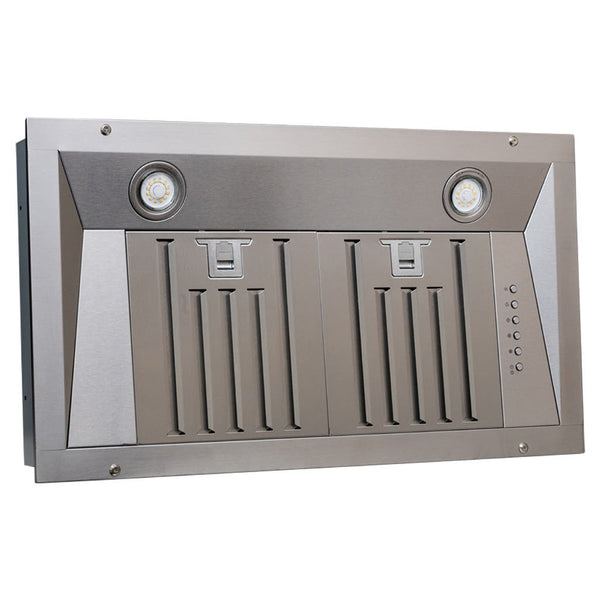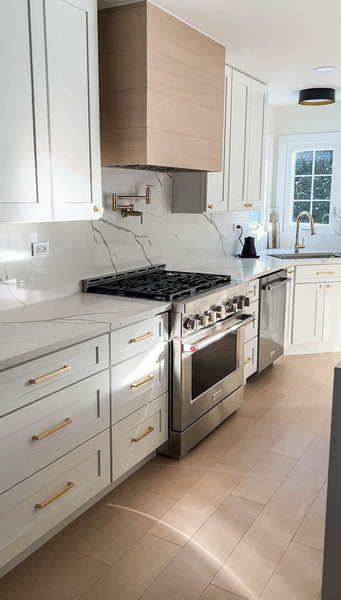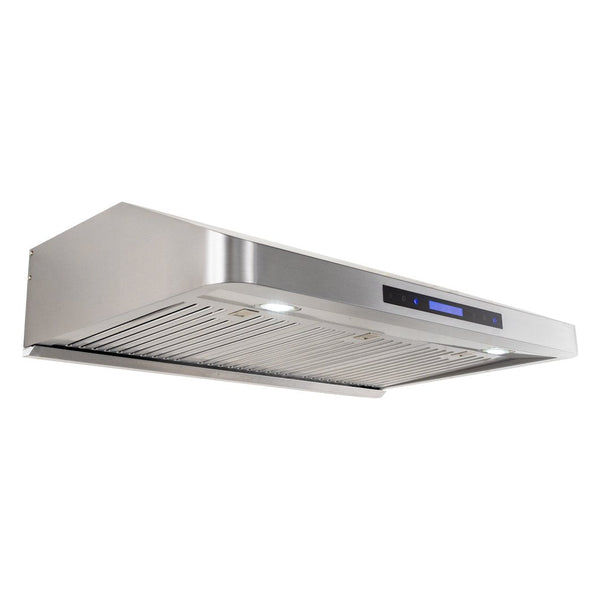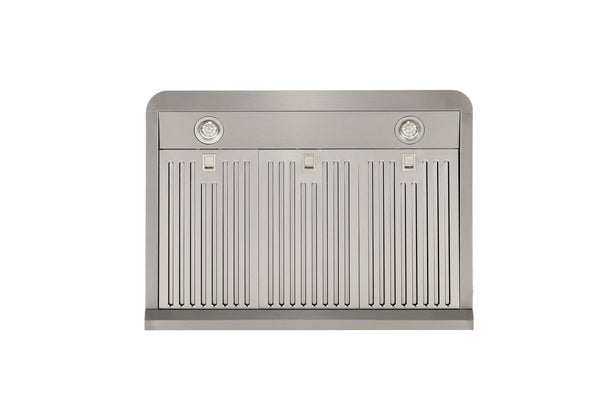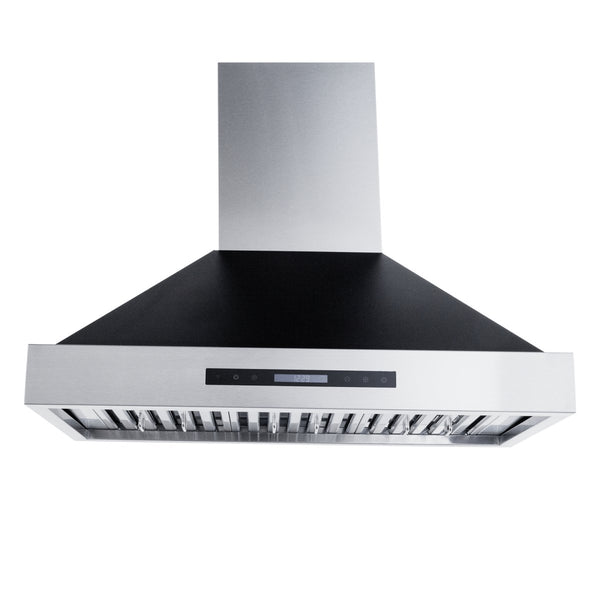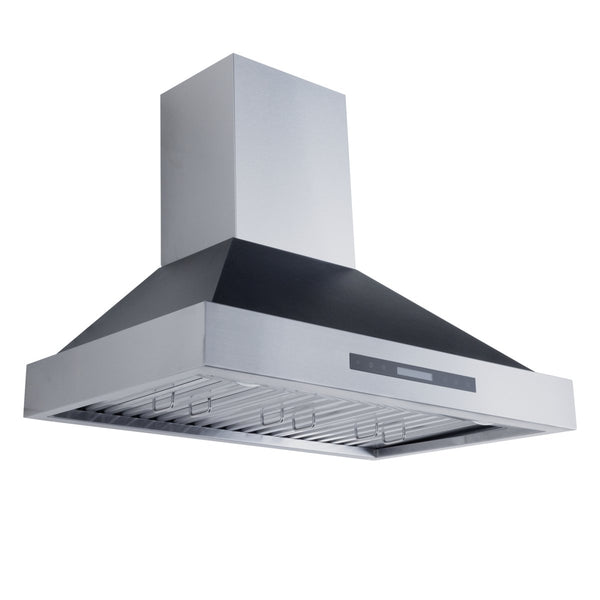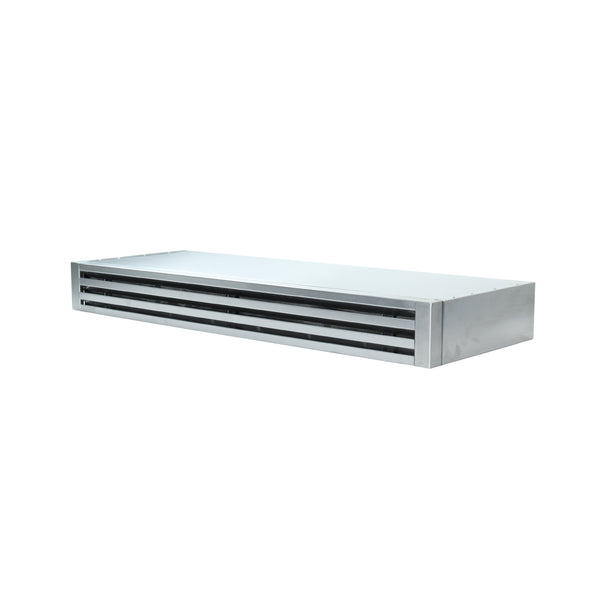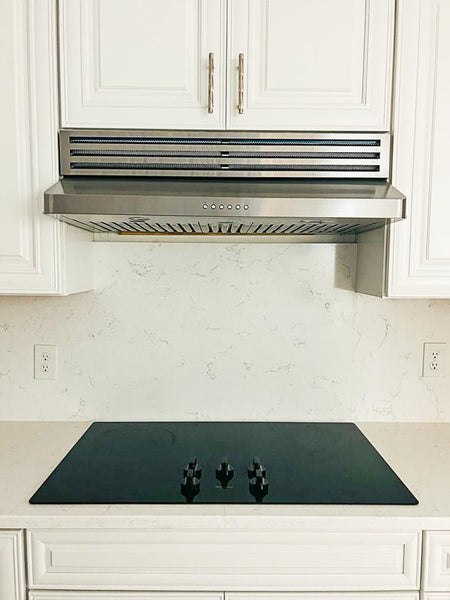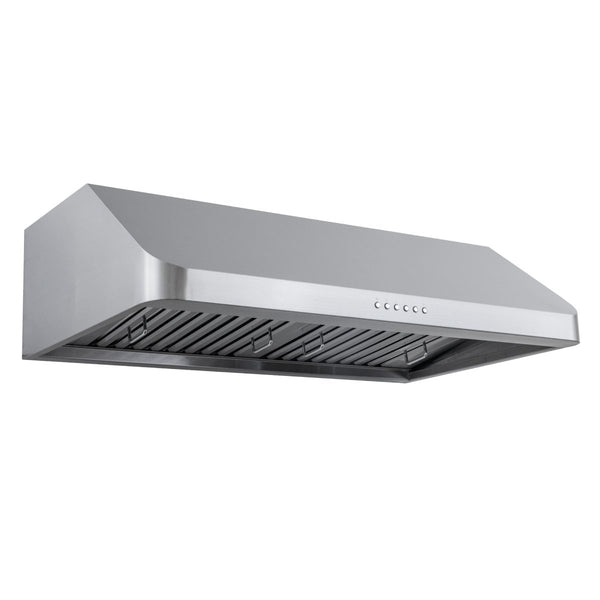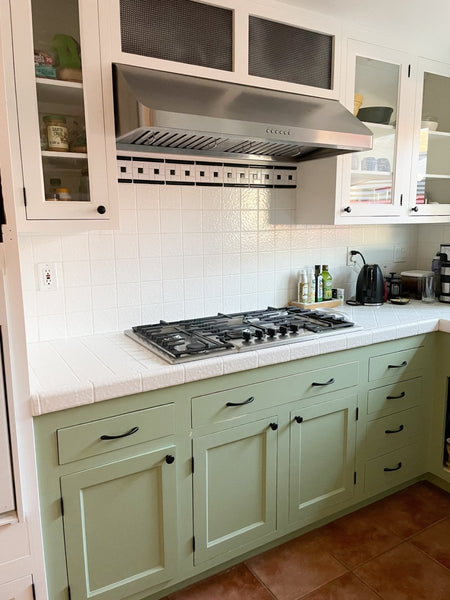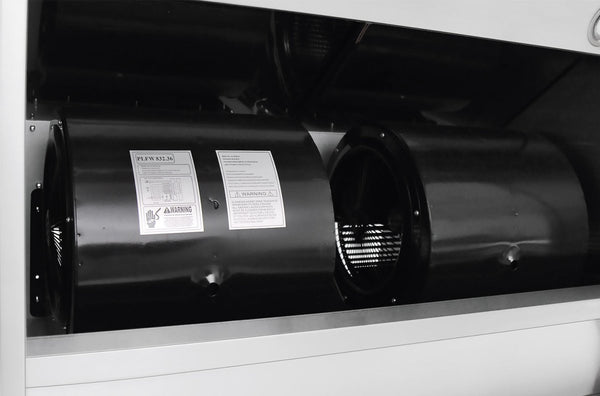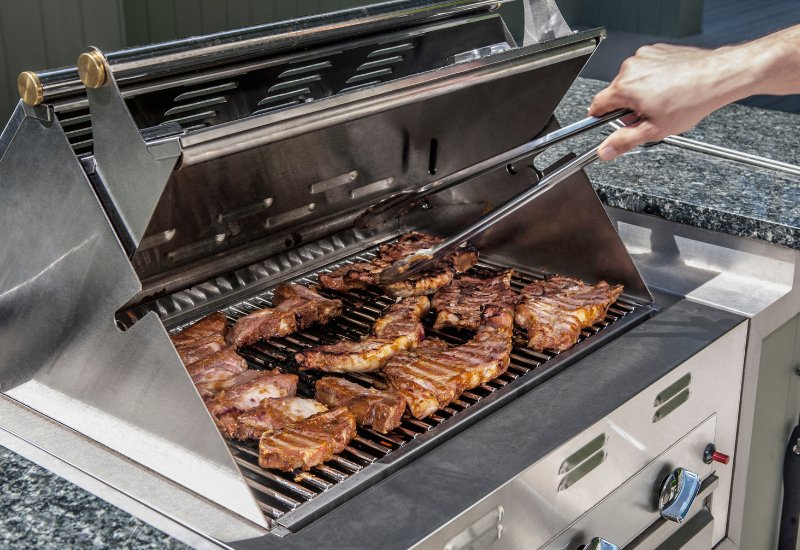Ah, the complexities of purchasing a natural gas grill! One of the most critical factors to consider is the size of the pipe you will need to ensure optimal efficiency and safety. But with so many variables at play, determining the appropriate size of pipe can be quite a puzzling endeavor.
The size of the pipe required for your natural gas grill is dependent on various factors, including the length of the pipe, the number of fittings, and the expected gas usage. While a 1/2-inch pipe is generally suitable for most homes, this is not a hard and fast rule. It is essential to consult with a gas specialist to determine the appropriate pipe size for your specific needs.
In this article, we will delve into the factors that influence the size of the pipe you need for your natural gas grill. We will explore the intricacies of pipe sizing and provide tips on how to choose the right size of pipe. Additionally, we will discuss the safety considerations that you need to keep in mind to ensure that your natural gas grill operates safely and efficiently
WARNING: Please note that only individuals with adequate electrical and mechanical experience and who comply with all relevant laws, rules, orders, or regulations should use the information contained in this article for the installation, service, or repair of heating or central air conditioning products. Attempting to do so without proper knowledge and experience can result in personal injury and/or property damage. The manufacturer or Proline Range Hoods is not liable for any misinterpretation of this information or any damage resulting from its use.
Whether you're a seasoned griller or a newbie, this article will equip you with additional knowledge about what size of pipe you need for your natural gas grill. So, buckle up, and get ready for a wild ride through the complexities of natural gas grill pipe sizing!
What Size Pipe Do You Need for My Natural Gas Grill?
If the thought of installing a natural gas grill has you feeling a bit overwhelmed, you're not alone!
Determining the appropriate size of the pipe for the gas supply can be a complex task that requires a bit of expertise.
The size of the pipe is dependent on the BTUs (British Thermal Unit) rating of your grill (or the combined BTUs your grill will put out if all burners are turned to high) and the length of the pipe run from the gas meter to the grill. Here, take the following chart and formula to figure out your needs for your situation. NOTE: The chart provided is only intended for reference purposes. To obtain official values, it is recommended to consult the National Fuel Gas Code and the manufacturer's documentation of your natural gas grill.

- Natural Gas flow is given in thousands of BTU/hr.
- One cubic foot of Natural Gas = roughly 1000 BTU
- Typical nominal pressure at the burner for Natural Gas is 3.5" of water column
- Typical machine supply pressure is 5" to 7" of water column
- Pipe length must include additional length for all fittings
- Add approximately 5 feet of pipe per fitting
An example using the table
Using the chart above, a machine with a burner that requires 220,000 BTU would need a 1" pipe for a 20' run.
How we did it
We got there by taking the 220,000 BTUs and dividing it by 1,000 leaving us 220. then, knowing we need a 20ft run, started in the 20ft row on the left and moved to the right until we got to the first number that was larger than 220 that we need which is 280. Then looked at the top of that column to find the 1” pipe.
But that's not all - there are several other factors to consider as well!
Most homes will require a 1/2-inch pipe for natural gas grills. While this is adequate for most appliances, including furnaces, water heaters, and stoves, if you plan to use multiple appliances or expect to use a lot of gas, you may need a larger pipe.
For example, a home with a furnace and a stove may require a 3/4-inch pipe. But that's not all - you also need to factor in the length of the pipe run, including additional length for all fittings.
We recommend when making you calculations adding approximately 5 feet of pipe per fitting you plan to use.
It's essential to plan the pipe run carefully to ensure the pipe is the correct size and length.
But wait, there's more! When installing a natural gas grill, you also need to consider the pressure of the gas supply. The typical nominal pressure at the burner for natural gas is 3.5" of water column.
However, the machine supply pressure is typically 5" to 7" of water column. Therefore, it's essential to ensure that the gas supply pressure is appropriate for the grill to operate safely and efficiently.
When it comes to connecting your natural gas grill to the gas supply, you need to use a flex hose. Natural gas grills come with some flex hose to connect your grill to the supply line.
You also need to make sure that the gas valve and the regulator are both in the full "open" position when using the grill. And when you're not using the grill, it's recommended that you close the gas valve to stop gas flow.
Factors to Consider When Determining the Size of Pipe You Need for Your Natural Gas Grill
There are several factors that you should consider when determining the size of pipe you need for your natural gas grill. These include:
- The distance between your natural gas source and your grill
- The BTU rating of your grill
- The number of fittings and elbows in your gas line
The Advantages of a Natural Gas Grill?
If you're in the market for a new grill, you might be wondering why people choose a natural gas grill or a propane grill. While both types of grills have their pros and cons, there are several reasons why you might want to consider a natural gas grill.
Affordability
While natural gas grills may be more expensive to purchase than propane grills, they are typically less expensive to operate in the long run.
This is because natural gas is generally less expensive than propane, which means that you'll save money on fuel costs over time. And let's be honest, who doesn't love saving money?
But that's not all - the affordability of natural gas grills goes beyond just fuel costs. Because natural gas grills are connected to your home's natural gas line, you don't have to purchase and transport propane tanks, which can save you money in the long run.
Propane tanks can be expensive, and the cost of transporting them can add up over time. With a natural gas grill, you don't have to worry about any of that. You can simply fire up the grill and start cooking without any additional costs or hassle.
Increased Home Value
And let's not forget about the added value that natural gas grills can bring to your home. A natural gas grill is a permanent fixture in your backyard, which can increase the value of your home.
And because natural gas grills are connected to your home's natural gas line, they are considered a safer and more reliable option than propane grills, which can also add value to your home.
Environmental Impacts
Natural gas grills are a better option for the environment than propane grills, and here's why.
Natural gas is a cleaner-burning fuel than propane, which means that natural gas grills produce fewer emissions than propane grills. This is great news for the environment, as it means that natural gas grills are a more sustainable option for outdoor cooking.
Convenience
Let's talk about the ultimate convenience of natural gas grills!
One of the most significant benefits is that they are connected directly to your home's natural gas line, unlike propane grills that require you to change out the propane tanks when they run out.
This means that you can grill to your heart's content without ever having to worry about running out of fuel in the middle of a barbecue. And let's be honest, there's nothing worse than running out of fuel when you're in the middle of cooking up a storm!
But that's not all - the convenience of natural gas grills goes beyond never running out of fuel. You also don't have to worry about the hassle of transporting and storing propane tanks.
Propane tanks can be heavy, bulky, and difficult to transport, not to mention the fact that you have to find a place to store them when they're not in use.
With a natural gas grill, you don't have to worry about any of that. You can simply fire up the grill and start cooking without any fuss or hassle.
But that's not all - the environmental benefits of natural gas grills go beyond just emissions.
Because natural gas grills are connected to your home's natural gas line, you don't have to worry about disposing of empty propane tanks. Empty propane tanks can be difficult and expensive to recycle, which means that they often end up in landfills.
With a natural gas grill, you don't have to worry about any of that. You can simply enjoy your barbecue without any additional environmental impact.
Things to Know About a Natural Gas Grill
So, you've decided to switch to a natural gas grill. Before you start grilling, there are a few things you need to know to ensure your grill is safe and working properly. Here are some key factors to consider:
Fittings
Fittings play a crucial role in ensuring that your grill operates safely and efficiently.
Most homes will require a 1/2-inch pipe for natural gas. However, the size of the pipe will depend on several factors, including the appliances you're using and the amount of gas you expect to use. It's important to consult with a gas specialist to determine the appropriate size of pipe and fittings for your specific needs.
When it comes to connecting your natural gas grill to the gas supply, having the correct fittings is essential. For example, if your grill connection is 1/2" and your gas line is 3/8", you will need a 1/2" straight pipe nipple, a bell reducer, and a 3/8" straight pipe nipple to complete the setup.
Using the correct fittings ensures that your grill operates safely and efficiently, and it also helps to prevent gas leaks and other potential hazards
In addition to using the correct fittings, it's also important to ensure that all fittings are properly tightened and secured.
Loose fittings can lead to gas leaks, which can be dangerous and costly. It's recommended that you use a pipe wrench to tighten all fittings and check them regularly to ensure that they remain secure.
Water Column Pressure
It is necessary to push water through these grills' burners at a specific level of pressure called water column pressure (WCP).
Water column pressure is a critical factor that determines the proper operation and safety of your grill. The typical nominal pressure at the burner for natural gas is 3.5" of water column, and the typical supply pressure is 5" to 7" of water column.
To ensure your natural gas grill works properly and safely, you must ensure that it has the correct water column pressure. A low water column pressure may cause your grill not to operate efficiently, while a high water column pressure can cause it to be dangerous and possibly damage it.
To ensure that your natural gas grill is set up with the correct water column pressure, it's recommended that you consult with a gas specialist. A gas specialist can help you determine the appropriate water column pressure for your specific grill and ensure that it's set up correctly.
In addition to setting up your grill with the correct water column pressure, it's also important to regularly check the pressure to ensure that it remains within the appropriate range.
If you notice any fluctuations in the pressure, it's important to address them promptly to prevent any potential hazards.
Water column pressure is crucial for ensuring that your natural gas grill functions properly and is safe to use. To ensure that your grill remains within the appropriate range, it's important to set it up with the right water column pressure and regularly check it.
To ensure that your grill is set up correctly and works safely, consult a gas specialist if you're unsure about its water column pressure.
Shut-Off Valve
It's important to have both an inside and outside shut-off valve for your natural gas grill.
Having both an inside and outside shut-off valve allows you to quickly and safely turn off the gas supply in case of an emergency. For example, if there is a gas leak or a fire, you can quickly shut off the gas supply to prevent any potential hazards.
When installing a new gas line for your natural gas grill, it's important to install a new gas shutoff valve.
This ensures that you have a reliable and up-to-date shut-off valve that you can rely on in case of an emergency.
It's also important to know where both shut-off valves are located.
This allows you to quickly and easily access them in case of an emergency. Make sure that both shut-off valves are easily accessible and that everyone in your household knows where they are located.
FAQ
So, you have decided to install a natural gas grill, and now you are wondering what size of pipe you need. Below are some frequently asked questions that can help you determine the right size of pipe for your natural gas grill.
What is the standard diameter for a residential natural gas service line?
The standard diameter for a residential natural gas service line is 3/4 inch. However, depending on your household's needs, you may need to upgrade to a 1-inch line.
Can I use a smaller pipe size if my grill has a lower BTU rating?
No, you should not use a smaller pipe size, even if your grill has a lower BTU rating. It is important to have the correct size gas line installed to avoid potential problems and ensure the safe and efficient operation of the grill.
Can I use a larger pipe size than what is recommended?
It is not recommended to use a larger pipe size than what is recommended. While it may seem like a larger pipe would provide better gas flow, it can actually lead to decreased gas pressure and performance issues with your grill.
How can I determine the right size of pipe for my natural gas grill?
The best way to determine the right pipe size for your natural gas grill is to consult a licensed professional. They can assess your natural gas system and your grill's specific requirements to recommend the appropriate pipe size.
There you go
It's crucial to have the correct size gas line installed for safe and efficient operation of your natural gas grill. But with so many factors to consider, it can be overwhelming to determine the right size pipe. From the BTU rating of your grill to the distance from the gas meter, there are many variables to take into account.
Don't forget to check with local codes and regulations to ensure that you're following the recommended guidelines. This can add to the perplexity of the process, as different areas may have different requirements.
And let's not forget about safety. Installing a shutoff valve is essential to turn off the gas supply in case of an emergency or when the grill is not in use. This adds to the burstiness of the process, as safety should always be a top priority.
But don't let these factors discourage you from installing a natural gas grill. With the right size pipe and shutoff valve installed, you can enjoy the convenience of cooking with natural gas without having to worry about running out of propane or changing tanks. So, take your time, do your research, and happy grilling!"
WARNING: Please note that only individuals with adequate electrical and mechanical experience and who comply with all relevant laws, rules, orders, or regulations should use the information contained in this article for the installation, service, or repair of heating or central air conditioning products. Attempting to do so without proper knowledge and experience can result in personal injury and/or property damage. The manufacturer or Proline Range Hoods is not liable for any misinterpretation of this information or any damage resulting from its use.
Here are some websites that provide valuable information for building your outdoor kitchen:
National Fire Protection Association - Information on fire safety guidelines and regulations for outdoor cooking.
National Outdoor Kitchen and Fireplace Association - Information on outdoor kitchen design and construction, as well as resources for finding professional contractors.
American Society of Landscape Architects - Information on outdoor kitchen design and landscaping ideas.
National Association of Home Builders - Information on outdoor kitchen design and construction, as well as resources for finding professional contractors.
